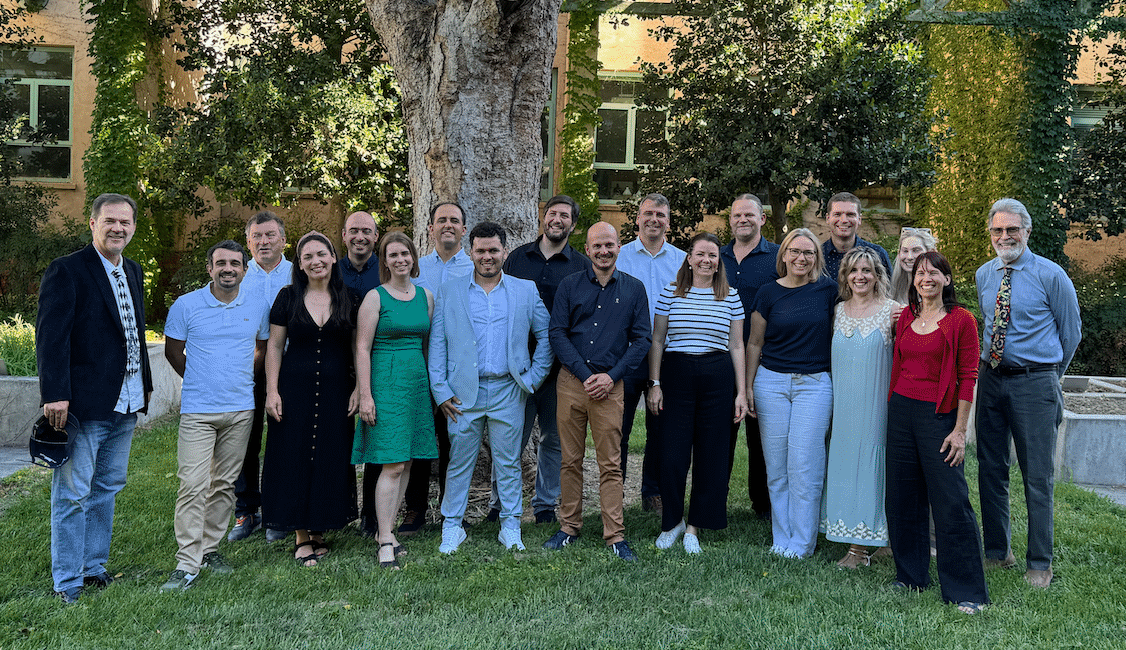Editor’s Note: CULTIVATING COMMON GROUND. Sustainable and thriving agricultural systems need a steady flow of innovation from research to the market. And this is where Plants for the Future ETP (Plant ETP) comes in, a multi-stakeholder platform that stands at the forefront of promoting innovation in the plant sector. From fundamental research to crop production and distribution, Plant ETP represents a diverse array of stakeholders, including academia, industry, and the farming community. The mission is simple yet profound: to unite these stakeholders in shaping the future of the plant sector, advocating for research and innovation, and, most importantly, connecting the dots between science, agriculture, and policy at the EU level. Read the article to find out everything you always wanted to know about Plant ETP.
In the ever-evolving landscape of agriculture, the flow of innovation from research to the market is crucial for sustainable and thriving agricultural systems. Enter Plants for the Future ETP (Plant ETP), a multi-stakeholder platform that stands at the forefront of promoting innovation in the plant sector.
From fundamental research to crop production and distribution, Plant ETP represents a diverse array of stakeholders, including academia, industry, and the farming community. The mission is simple yet profound: to unite these stakeholders in shaping the future of the plant sector, advocating for research and innovation, and, most importantly, connecting the dots between science, agriculture, and policy at the EU level.
Plant ETP is one of many European Technology Platforms — entities created at the request of the European Commission to support its ambition of creating a European Research Area (ERA) and stimulating private investment in research and public-private partnerships, as part of the Lisbon strategy and the Barcelona objective. These platforms were established to develop and execute a strategic research agenda (SRA) that aligns research priorities within specific technological areas. Although they do not have dedicated funding, ETPs serve as coordination and advisory structures, assisting in shaping the research agendas at the European level. These platforms address complex technological challenges with the aim of enhancing European industrial competitiveness and economic growth. Today, there are 38 active ETPs in various sectors, including bio-based economy, energy, environment, ICT, production and processes, and transport. These platforms remain autonomous and self-financing, contributing to the advancement of research and innovation agendas in Europe.
“One of the platform’s biggest assets is perhaps not the objectives, goals, or missions, but the people who push those forward, such as the members or Amrit Nanda, the Executive Manager of Plant ETP, who has been the force behind the platform since 2020,” says César González, as Chair of the Board of Directors of Plant ETP. “Amrit’s Ph.D. in Plant Molecular Biology and Physiology took her to various international research destinations where she specialized in understanding plant responses to environmental stress — and other types of non-plant-related stress. She has a clear understanding of the importance of academic rigour, and she also realizes that there is at times a very big gap between academia and its real-world counterparts. And it is this background that is helping her to manage the sometimes very diverse aspects of the platform. The realization of the gap contributes to her passion to guide the members and partners of the platform toward a common goal.”
Nurturing the Next Generation of Innovators
The importance of education in the plant sector cannot be overstated. It is the lifeblood that ensures the sector’s continued growth and adaptation to the changing world. The next generation of professionals, whether they are plant scientists, breeders, farmers, processors, or others, needs a unique blend of knowledge, entrepreneurship and adaptability. This diverse skillset is essential to respond to rapidly changing environments, evolving consumer preferences and shifting political frameworks. Plant ETP recognizes this and is committed to promoting education, training and knowledge-sharing in the plant sector. Through initiatives like the Education Action Plan, the platform is helping to build a sustainable workforce for the future. Plant ETP’s commitment to education goes beyond words. It is a partner in the EU-funded Erasmus+ FIELDS project, which addresses the current and future skill needs for sustainability, digitalization, and the bioeconomy in agriculture.
A Thriving Research Environment
If education is the lifeblood, research is the backbone of progress, and Plant ETP plays a pivotal role in promoting research for the benefit of society. Its Research Action Plan outlines key areas where immediate action is needed to enable the plant sector to contribute to the EU Green Deal goals. By focusing on sustainable plant production, improved quality of food, feed, and biobased raw materials, and a vibrant research environment, it ensures that European research addresses not only current challenges but also future needs through both basic and applied research. Even though research needs to provide solutions for current challenges, the platform also helps researchers understand the complex interdependencies related to agricultural systems, value chains and the impact of policy in order to tackle what the future might bring.

Europe has very high scientific excellence that can significantly contribute to more sustainable agricultural systems. Scientists, through their pursuit of research, aim to create a meaningful impact on society. However, they may occasionally encounter challenges related to resources, entrepreneurial skills, or networks, which hinder the transformation of their findings into practical products or services for the market. To support this, the platform brings out the big guns — multidisciplinary research and systems thinking — to address not only environmental but also socio-economic challenges. This approach creates a vibrant research environment that bridges the gap between life and social sciences. It is exactly such an environment that is needed if we want to get closer to the goals of the EU Green Deal. The plant sector has an important role to play and Plant ETP’s Research Action Plan outlines key research areas to exploit the power of plants in a clever and efficient manner. These research areas include increasing sustainable plant production and yield by improving resource use efficiency, yield stability, resilience to dynamic environments, and plant health; improving the quality of food, feed, and biobased raw materials by breeding plants with increased nutritional properties and properties relevant for use in downstream processing for non-food product; and lastly, promoting a vibrant research environment by developing and implementing horizontal actions and strengthening basic and applied research infrastructure. As part of its implementation strategy, Plant ETP contributes to several EU-funded projects, either directly as a partner in a consortium or by providing input on behalf of the plant sector as a member of a Stakeholder Advisory Board. This hands-on engagement ensures the research efforts have a real-world impact.
Paving the Way for Innovation
Far too often, we hear about the importance of science-based decision-making and innovation-friendly policies, but far too rarely do we see that unfold on the ground. The path to innovation is seldom straightforward. The time to market for future innovations, often derived from de novo research, is lengthy — especially for plant breeding which can sometimes take as long as 20 to 30 years. Therefore, it’s essential to consider how market needs will change over time and to ensure that actions supporting short-, medium- and long-term goals coexist to achieve the ambitious policy target.
In the past years, New Genomic Techniques like gene editing have become a large part of the conversation in the sector and at the policy level, and the platform is anything but late to the party. Plant ETP provides a neutral platform for stakeholders across the value chain and with different perspectives to discuss and share their views. Plant ETP is also a partner in an ambitious Horizon Europe-funded project called GeneBEcon that examines the innovation potential of gene editing in enabling a sustainable bioeconomy in Europe. GeneBEcon will construct a toolbox for gene editing for potato and microalgae, providing case studies to assess regulatory options, analyse economic impacts and assess societal desirability. This innovative approach includes reducing pesticide use in potato cultivation, chemical-free potato starch processing, and resource-efficient and clean production of industrially relevant compounds from microalgae.
Raising Awareness and Building Partnerships
Plant ETP doesn’t operate in isolation; rather, it actively seeks to engage with the wider community. Collaborating on ‘citizen science’ projects and organizing workshops with stakeholders and policymakers are some of the ways in which the platform is vocal about the power of plants. We cannot drive innovation without increasing citizen awareness about the importance of plant breeding and plant sciences in our food system. How often do people hear about plant breeding and immediately think about a syringe filled with blue or green liquid being injected into a bright red apple? Unfortunately, far too often. Our food system has been in the making since the beginning of humankind and Plant ETP recognizes the importance of busting some of those inflammatory images. People have questions and concerns: the platform offers answers and the opportunity for dialogue through its social media accounts, reaching a diverse audience that is steadily growing. Recent years have clearly shown the power that social media has in mobilizing great masses of people, so Plant ETP asks: why not mobilize social media to post about our ancestors who domesticated wheat ~10,000 years ago and taking the first step in breeding, or thank Norman Borlaug and others who played a key role in the green revolution, thereby providing food security for millions throughout the globe?













